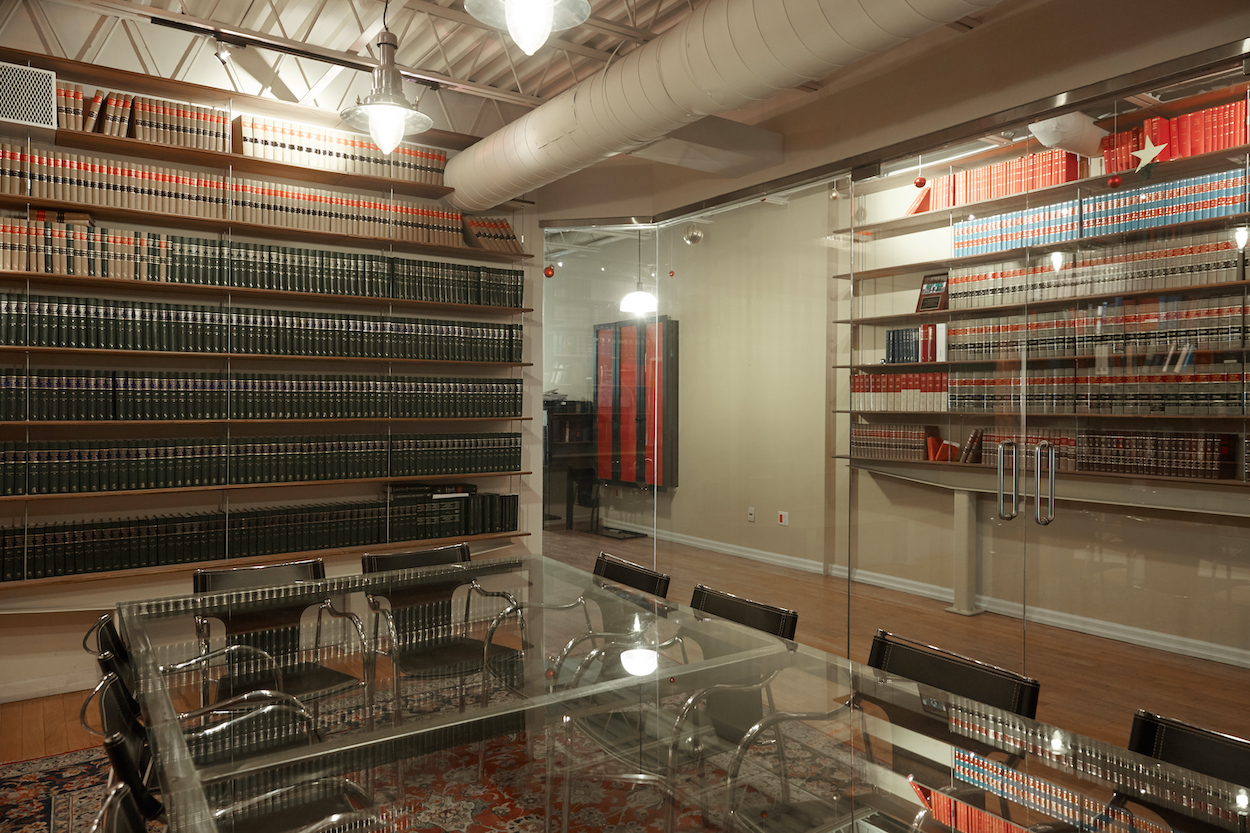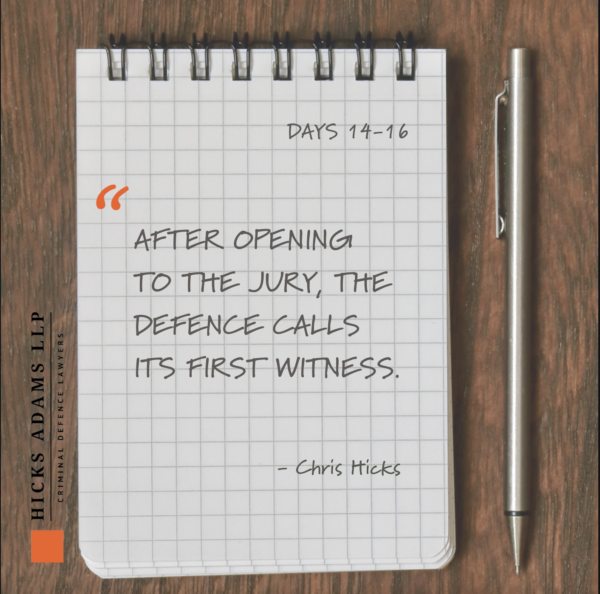Criminal defence lawyer and partner at Hicks Adams LLP Christopher Hicks has written a series of journal entries to take readers behind the scenes of something few people have exposure to: a trial for first-degree murder. In these journals, readers will experience the daily progress of a trial from the defence lawyer’s point of view, with the lawyer’s perspective on everything including witness testimony, judicial rulings and legal strategy.
Making this series especially unique is the fact that this is the first jury trial to go forward in Ontario after the start of the Covid-19 pandemic. With new safety protocols in place, everything is different from the placement of the jury, the lack of observers in the public gallery and even the freedom of movement for the lawyers.
In a nine-part series, Christopher Hicks will take readers through the highly unusual process of running a murder trial during a pandemic, providing rare insights and information as you follow along on the journey from start to finish. See previous installments by clicking on the links below:
Part 1; Part 2; Part 3; Part 4; Part 5
DAY 14
After the evidence of Dr. Pollanen, the Crown closes its case. Joanne Griffiths and I have brought an application for a directed verdict.
We are asking the judge to assess the evidence she has heard during the prosecution’s case and conclude that there is not sufficient evidence on the issue of first-degree murder to allow the trial to continue on that allegation. If the trial judge agrees, she will order the trial to continue on a count of second-degree murder.
DAY 15
Justice Bird does not agree. She dismisses the application, and the trial continues on an allegation of first-degree murder.
After opening to the jury, the defence calls its first witness.
Terry Whelan is Robbie McGregor’s aunt, although she has acted as his mother since he was 4 years old. The McGregor family has a troubled history. Robbie McGregor’s older sister was sexually molested at a very young age by her biological father, which shattered the family. Eventually, Whelan raised both children on the farm which she bought from her mother.
Robbie McGregor never really left home, but lived with Whelan, his mother, and her partner Pacey, usually in a trailer on Whelan’s property.
Whelan knew Joanne MacKenzie and the two had a positive relationship. Both she and Robbie McGregor had a cordial co-operative relationship centred on the care of their daughter. When their relationship floundered and matters went to family court, Whelan listened to both sides impartially. She believed their daughter should be with Joanne, and Robbie should ask for custody as a tactical matter but be content with visitation rights.
Whelan was in Toronto with friends the morning of July 2. She received a text from Robbie McGregor, which read: ‘need to talk to you-someone touched [my daughter]’.
Whelan returned to the farm. Shortly after her arrival, Robbie McGregor pulled in and leapt from his car. His clothing was dishevelled, hair messy, eyes huge, he was drooling, and his nose was bleeding.
Whelan asked, ‘Where’s Jo?’ She had expected Joanne MacKenzie to be at the farm out of concern for their daughter. McGregor responded, ‘have to talk, we smoked a bowl (of marijuana), had a fight’.
Whelan was uninterested in any drama, and dismissed McGregor, telling him to get cleaned up. Whelan’s position was that if the young girl had been abused, they should go to Kinark, where Robbie McGregor’s sister had been counselled and treated after she was abused.
DAY 16
Terry Whelan continues her testimony. Kinark, she explains, is a clinic and a treatment institution. She had been trained by Kinark to help with Robbie’s sister, whose damage continued into adulthood.
Whelan was dismayed when Joanne MacKenzie did not come to the farm the morning of July 2 and was not in contact thereafter. Whelan knew Jessup’s name but did not know him. She did not talk her granddaughter about the abuse allegations.
Stay tuned for future installments in this series, which will be posted every Monday.
Christopher Hicks is one of the founding partners of the criminal law firm of Hicks Adams. He has been practicing criminal law for more than two and a half decades, with a special interest, and extensive experience, in jury trials and appeals. In the course of his career, Christopher has been involved in scores of jury trials involving the most serious crimes in the criminal code, has argued appeals of both conviction and sentence in the court of appeal on a regular basis, and has represented clients in the Supreme Court of Canada on more than a half dozen occasions.
To reach Christopher or any of the experienced and dedicated criminal lawyers at Hicks Adams, contact the firm at 416-975-1700 or online to discuss your matter in confidence.



